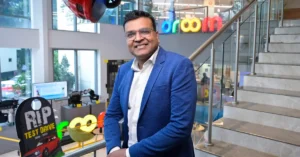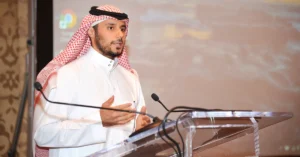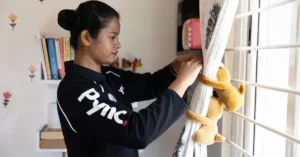Bengaluru-based Sama, a legal tech startup founded by Pranjal Sinha, Akshetha Ashok, and Vikram Kumar, aims to alleviate the burden on courts by providing swift and cost-effective online resolution of civil disputes. Interestingly, the idea of Sama emerged from the founders’ previous experience running a B2C software solutions company in Bengaluru, which catered to various startups. While their software helped streamline day-to-day operations for their clients, they faced significant challenges in recovering timely payments for their services, highlighting the need for efficient dispute resolution mechanisms.
“We would raise invoices but did not get paid in time. As a result of this, we were forced to disconnect their services until they paid but keeping a track was getting difficult. There were invoices amounting to lakhs of rupees which were stuck.” a company insider told The Better India
The company tried reaching out to the customers through multiple phone calls and emails, but received no response.
“We did not have the bandwidth to file a court case and physically visit the court. So, we sought help from a legal startup called Sama which issued notices to them. Within 30 days, our case was resolved and we were able to recover our invoices,” the insider further explained.
Founded in 2015, by three innovative college students – Pranjal Sinha, Akshetha Ashok, and Vikram Kumar, Sama has successfully resolved over 35 lakh cases out of court – transforming the legal landscape.
“All of us came with a startup idea. I envisioned working on an Online Dispute Resolution (ODR) system that could reduce the dependency on courts which are already burdened with a backlog of cases,” said Pranjal statement to The Better India
While Vikram pursued a degree in computer science, Pranjal and Akshetha focused on law. The seeds of their collaboration were sown in 2015, when Vikram and Pranjal, then a second-year law student at the West Bengal National University of Juridical Sciences, crossed paths at the Startup Weekend event organized by IIM-Calcutta.
In 2018, Pranjal received the prestigious JAMS Weinstein International Fellowship, which afforded him the opportunity to attend the renowned Mediation Training Course at Harvard Law School and the Business Development Course at Stanford Graduate School of Business.
“I was always fond of mediation. This three-month long fellowship allowed me to observe the online dispute resolution and case management concepts in the US. Back at home in India, the tareekh-pe-tareekh (chronic delay in judicial proceedings) hinders justice. I wanted to reduce the burden on courts,” Pranjal added.
The name “Sama” is inspired by the ancient Indian concept of ‘saam’ from Chanakya’s neeti, which emphasizes the power of persuasion and dialogue. ‘Saam’ is one of four key principles outlined by Chanakya, alongside ‘daam’ (strategic purchase), ‘dand’ (judicious punishment), and ‘bhed’ (exploiting weaknesses).
Sama specializes in resolving civil disputes across various sectors, including banking, finance, insurance, broker disputes, and security markets. By focusing on these areas, the startup aims to provide targeted support and expertise to individuals and organizations navigating complex legal issues.
“We also work with Lok Adalats which manages disputes related to challan and electricity bill, accidental insurance, and cheque bounce cases,” Pranjal added.
Pranjal explains the startup’s process, which begins with the grievant registering on the website and filing their case. Next, the team reaches out to the opposing party through email, phone, and formal courier notice, inviting them to participate in an out-of-court settlement. Once both parties agree, an experienced mediator is assigned to facilitate a conversation, aiming to reach a mutually acceptable settlement, known as a rajinama.
“We try to complete this process within 30 days. After this, we design a settlement agreement and take signatures of both parties and mediators. It has the same value as the decree of the court. The only difference is that it requires three years in court whereas 30 days with us.However, if the settlement does not occur at the mediation level, the case goes for arbitration. “While mediation cannot pass a judgement and only strive for settlement, arbitration gives the final judgement. The case in arbitration gets resolved within 90 days,” Pranjal added
According to Pranjal, in India, private parties can resolve disputes through mediation, provided they adhere to the Mediation Act 2023 and the Arbitration and Conciliation Act, 1996. Notably, the startup has received recognition from former Union Minister of Law and Justice Kiren Rijiju for its efforts in promoting Online Dispute Resolution (ODR) in India.
To date, the startup has successfully onboarded over 3,000 experienced arbitrators and mediators, spanning 443 districts across India. Notably, these professionals bring a wealth of expertise, with arbitrators possessing at least 10 years of experience and mediators having at least 5 years of legal experience.
The startup secured its first client in 2019, marking a significant milestone after a period of steady growth. Notably, the company faced a challenging initial phase, with no cases registered between 2015 and 2018.
“People didn’t even understand the word mediation. They would confuse it with meditation.” Pranjal opines, “Initially, we worked a lot to raise awareness about ODR. We organised nukkad nataks and campaigns like suljhao magar pyaar se (resolve with love), used flash mobs, and distributed pamphlets.”
In just a few years, they had made a significant impact, solving more than 35 lakh cases by 2024.
Explaining Sama’s online client support process, Pranjal notes that they assign a dedicated case manager to each party, ensuring personalised guidance and assistance throughout the resolution journey.
“The case manager is like a friend to them. They help them with administrative support from uploading documents, logging in, and any guidance required in the case. This has helped give a human touch and make online proceedings easier,” he explained.
However, online operations also present challenges, including difficulties in contacting parties with outdated phone numbers and resistance from lawyers who fail to recognize the benefits of Online Dispute Resolution (ODR).
“We have started sending offline notices to parties and making sure that the experience for our 3,000 lawyers is good so that they can spread the word about ODR. We are also experimenting with artificial intelligence to handle more case volume,” added Pranjal.
To facilitate swift out-of-court settlements, Sama adopts a performance-based incentive structure, rewarding case managers for successful resolutions rather than paying a fee per hearing. Additionally, Sama charges a nominal one percent fee of the total claim amount for each case.
“Usually, we see that lawyers try to extract more amounts from clients and keep delaying the case. But our business model is based on incentivising the lawyers based on the success rates of the cases. We give 4x money if the settlement is reached on time. This encourages mediators to solve the cases fast and reach a conclusion,” Pranjal explained, “If the dispute is within a lakh, we charge the client Rs 1,000, whereas we take Rs 2,000 for clients between Rs 1-3 lakh. This is 99 percent cheaper than the courts.”
Earlier this year, Sama gained prominence after appearing on Shark Tank India Season 3, securing a lucrative deal worth INR 1 crore from a trio of investors: Aman Gupta, co-founder of boAt; Namita Thapar, Executive Director of Emcure Pharmaceuticals; and Ritesh Agarwal, CEO of OYO Rooms.
“Not only did we receive the funding but this exposure also helped us get a good reach and spread awareness about ODR. Our idea got a validation when we explained it to the viewers in a non-legal language. Finally, our families also understood what we were trying to do,” Pranjal exclaimed,
“Personally, it has been a very challenging but rewarding journey for us. I really feel Sama is a divine sewa (service). Every day, we deal with a lot of negativity but when years long disputes are solved, we get equal amounts of satisfaction.” he signifies the success of the startup.
“It will take us another 10 years to make Sama a primary resort for civil disputes to be able to reduce the burden on courts so that they can focus on criminal cases instead,” Pranjal concluded
ⓘ The above conversation originally appeared on The Better India





